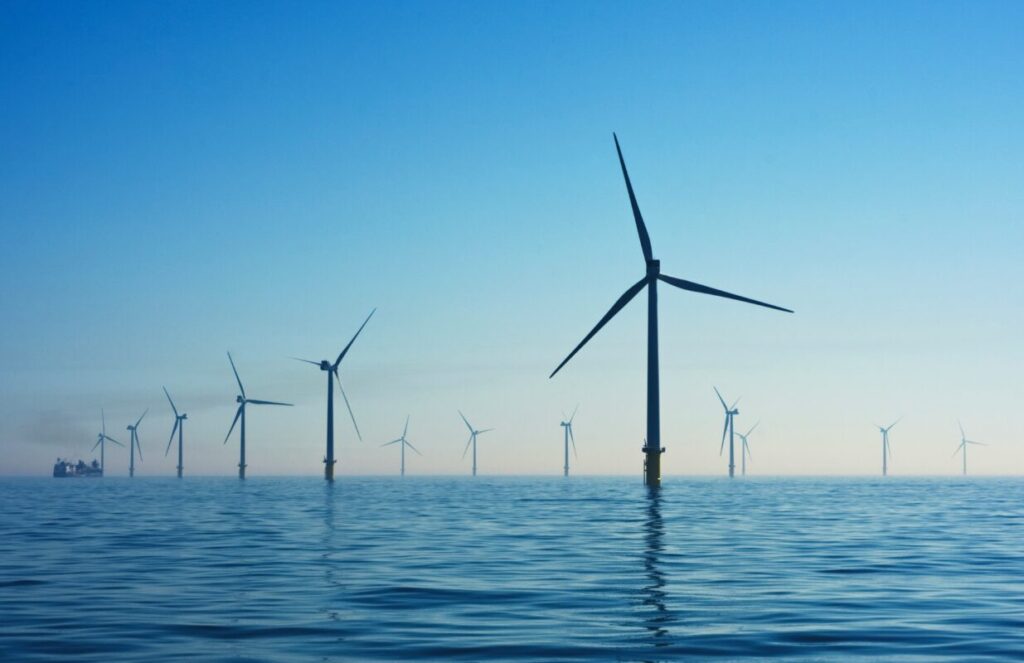The UK government has launched a Clean Industry Bonus, which it says will support clean energy manufacturing and skilled jobs in industrial areas.
The bonus provides financial support for offshore wind developers on the condition that they prioritise their investment in areas that need it most, in particular communities that have historically relied on the oil and gas industry.
It will come with an initial £27 million per gigawatt for offshore wind projects and will be allocated competitively, with results announced by energy secretary Ed Miliband in summer.
The application window is now open. The finance is available for developers establishing operations that will support highly skilled jobs, like engineers and electricians, as well as those building low-carbon factories, offshore wind blades, cables and ports to reduce industrial emissions across the clean energy sector.
The Clean Industry Bonus will apply to all offshore wind projects bidding for funding through allocation round 7 (AR7) of the contracts for difference (CfD) scheme. The funding will come through the CfD mechanism.
According to the Department for Energy Security and Net Zero (DESNZ), the UK produces more offshore wind than any other European country. That is why the sector is so leaned on in the government’s Clean Power 2030 (CP30) plan.
Since July, the current UK government has seen £34.8 billion private investment into the nation’s clean energy industries.
Currently just 8% of UK wind turbines and equipment is produced domestically. The government has a target to increase this to 60 per cent by 2030, which would in theory create 35,000 jobs.
Energy secretary Miliband commented: “We are backing our proud manufacturing, coastal and oil and gas communities with good jobs, skills and private sector investment – delivering on the government’s Plan for Change.”
Employment in the energy transition
As has been covered on Current±, the government invested in green jobs at the beginning of the year with the launch of its ‘skills passport’ that allows oil and gas industry workers to use an online portal to assess how they can move their careers into the renewable energy sector.
The online portal, which is led by trade bodies RenewableUK and Offshore Energies UK, allows workers to identify where their current qualifications will be recognised in the clean energy industry, with an initial focus on opportunities in the offshore wind industry.
Commenting on the new industry bonus, RenewableUK CEO Dan McGrail said: “The offshore wind industry already employs over 34,000 people in the UK, but there’s an opportunity to treble this number by the end of the decade if we grow the sector’s supply chain. Government initiatives like the Clean Industry Bonus, coupled with industry initiatives to support innovation and the upcoming Industrial Strategy, could drive hundreds of millions of pounds of private investment into new manufacturing.”
The government has identified Aberdeen, Cheshire, Lincolnshire and Pembrokeshire as key growth areas for the renewable energy sector, owing to strong offshore wind, nuclear, and solar industries in these regions.
Critique of Labour’s climate policy often centres around the potential job losses associated with closing down oil and gas industry in the North Sea. It has based its flagship Great British Energy publicly owned clean energy investment vehicle in Aberdeen and promised the company will create 650,000 jobs by 2030.
Workers’ union Unite, which has been vocal about its concern that the energy transition will leave oil and gas workers unemployed, said it welcomes the “baby step in the right direction” represented by the Clean Industry Bonus.
However, it said the initiative is underfunded. Unite general secretary Sharon Graham said: “The funding on offer so far is nowhere near enough to transform offshore wind manufacturing in the UK.
“If the government is going to get anywhere close to its targets on domestic wind manufacture and green jobs it will need to come up with much more ambitious levels of investment and make sure that it delivers.”






